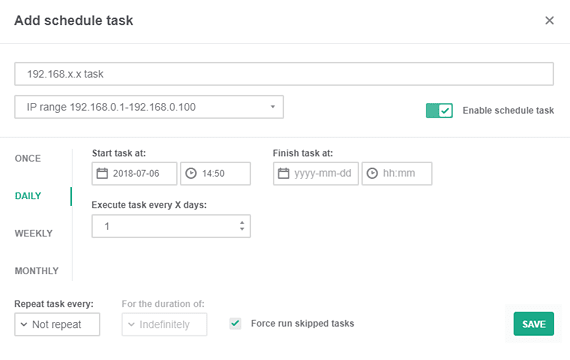Things about "5 Essential Network Scripting Applications for IT Professionals"

Python is a strong system language that uses a large array of public libraries and structures for automating different network jobs. With its basic phrase structure, Python produces it simple to write texts that can be utilized to automate repeated network jobs. In this post, we will definitely review how to automate system duties along with Python scripting.
Before we begin, permit's take a look at some of the simple concepts related to system. Systems comprise of units such as routers, change, firewalls, and servers that are connected together using several procedures such as TCP/IP, HTTP/HTTPS, and SSH. System administrators are liable for dealing with these units and guaranteeing that they are performing appropriately.
One of the very most usual jobs carried out through system administrators is configuring system units. This entails setting up IP deals with, configuring routing desks, developing gain access to management checklists (ACLs), and numerous various other tasks. These duties may be time-consuming when done by hand but may be automated utilizing Python scripting.
Python delivers many libraries for working with networks such as Paramiko for SSH connections and Netmiko for dealing with system gadgets with CLI (Command Line Interface). Utilizing Look At This Piece makes it possible for us to automate various system duties quickly.
Permit's take an example of setting up the IP address on a hub utilizing Netmiko public library:
```python
coming from netmiko import ConnectHandler
# Define device specifications
unit =
' device_type':'cisco_ios',
' ip':'192.168.1.1',
' username':'admin',
' password':'code'
# Attach to gadget
net_connect = ConnectHandler(**device)
# Send configuration order
config_commands = ['interface GigabitEthernet0/0',
' ip deal with 192.168.2.1255.255.255.0']
result = net_connect.send_config_set(config_commands)
print(output)
# Disconnect coming from gadget
net_connect.disconnect()
```
In this manuscript, we to begin with define the gadget criteria such as the tool kind, IP handle, username, and password. We then utilize Netmiko to attach to the gadget and deliver arrangement demand. Eventually, we detach coming from the unit.
Another instance of using Python for system computerization is tracking network devices for particular activities. For instance, we can write a manuscript that observe a hub's Central processing unit utilization and delivers an e-mail notice if it exceeds a specific threshold. This may be attained making use of SNMP (Simple Network Management Protocol) and smtplib collections.
```python
import os
import opportunity
from pysnmp.hlapi import *
import smtplib
# Define SNMP specifications
community = 'public'
ip_address = '192.168.1.1'
oid = ObjectIdentity('SNMPv2-MIB', 'sysDescr', 0)
# Define e-mail criteria
sender_email = '[email protected]'
receiver_email = '[email protected]'
password = 'code'
while Correct:
# Receive Central processing unit useusingSNMP
errorIndication,errorStatus,errorIndex,varBinds=next off(
getCmd(SnmpEngine(),
CommunityData(community),
UdpTransportTarget((ip_address,161)),
ContextData ( ),
ObjectType(oid ))
)
cpu_utilization=str(varBinds[0][1]).split()[-2]
# Send outemailalertifCPUapplicationgoes beyondlimit
if int(cpu_utilization)>90:
information =f'CPUutilizationonip_address iscpu_utilization%'

along with smtplib .SMTP_SSL('smtp.gmail.com',465)asserver :
server.login(sender_email,password)
server.sendmail(sender_email,
receiver_email ,
message )
# Hang aroundfor5 minutesjust before inspectingagain
time.sleep(300)
```
In this text, we make use of SNMP to acquire the CPU usage of a hub. We at that point inspect if the CPU utilization exceeds a particular limit and send an email notice if it does. Finally, we hang around for 5 mins prior to checking again.
In final thought, Python scripting can easily be made use of to automate different system activities such as setting up system tools, tracking system tools, and a lot of others. Making use of Python collections such as Netmiko and Paramiko creates it simple to automate these tasks and spares time for system managers.
